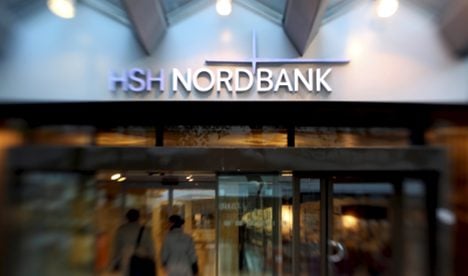The detective agency, Prevent, spent months investigating journalists, according to a report that law firm WilmerHale sent to the bank’s board in October 2010. The bank is 83.3 percent owned by the states of Hamburg and Schleswig-Holstein.
The report concerned the circumstances surrounding the firing of former COO Frank Roth in April 2009. Roth had been accused of leaking internal documents to the press, an accusation that the bank has since withdrawn.
According to WilmerHale, in January 2009 the former HSH chairman Dirk Jens Nonnenmacher and Wolfgang Gößmann, the company’s then chief counsel, asked Prevent to “investigate in media circles” how journalists had gotten hold of confidential information from the bank. The operation was given the codename “Haubarg,” lasted from February to November 2009 and cost “more than €640,000.”
WilmerHale found that Prevent “had monitored editorial offices of German newspapers” and “investigated the German press scene.” The new management at HSH described the Prevent incident as “very regrettable.” In the bank’s view, it is “unsatisfactory that, despite intensive investigations, some questions remain unanswered.” It is now up to the Prosecutors Office to clear up the matter, the bank concluded.
Prosecutors in Kiel are currently investigating Gößmann on suspicion of having set up Roth, by laying false trails. Gößmann’s lawyer said his client rejected all of the accusations. The “Haubarg” contract had not been about spying on journalists, he said. Prevent had only “sought to make contact with journalists and through discussions find out who had been leaking confidential information from the HSH Nordbank.” In addition, according to his lawyer, it was not Gößmann but Nonnenmacher who had employed the private detectives.
The Local/smd



 Please whitelist us to continue reading.
Please whitelist us to continue reading.
Member comments